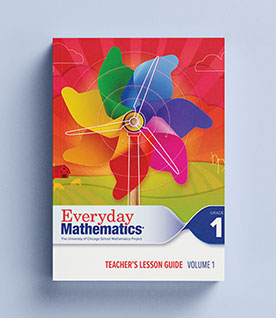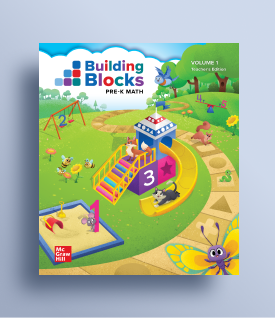My Account Details

Program Foundations
Grounded in Inquiry-Based Learning
IMPACT was built on the belief that inquiry is at the heart of social studies—inspiring young learners to ask questions, investigate, and build a rich collage of knowledge and ideas. By incorporating the inquiry-based C3 Framework, thought-provoking Essential Questions, and rich texts that showcase multiple perspectives and democratic principles, IMPACT provides the high-quality social studies instruction students need to grow into active, responsible citizens.
The C3 Framework
The College, Career, and Civic Life (C3) Framework for Social Studies State Standards was developed to strengthen social studies programs nationwide by (a) enhancing the rigor of the social studies disciplines, (b) building critical thinking, problem solving, and participatory skills to foster engaged citizens, and (c) aligning to the Common Core State Standards for English Language Arts and Literacy in History/Social Studies.
The C3 Framework is guided by the following shared principles about high-quality social studies instruction, as outlined by the National Council for the Social Studies (NCSS):
- Social studies prepares the nation’s young people for college, careers, and civic life.
- Inquiry is at the heart of social studies.
- Social studies involves interdisciplinary applications and welcomes integration of the arts and humanities.
- Social studies is composed of deep and enduring understandings, concepts, and skills from the disciplines. Social studies emphasizes skills and practices as preparation for democratic decision-making.
- Social studies education should have direct and explicit connections to the Common Core State Standards for English Language Arts.
The C3 Framework envisions social studies instruction as an inquiry arc, where each of its four dimensions works together to spark curiosity, drive deep investigations, and provide real-world applications for knowledge and ideas.
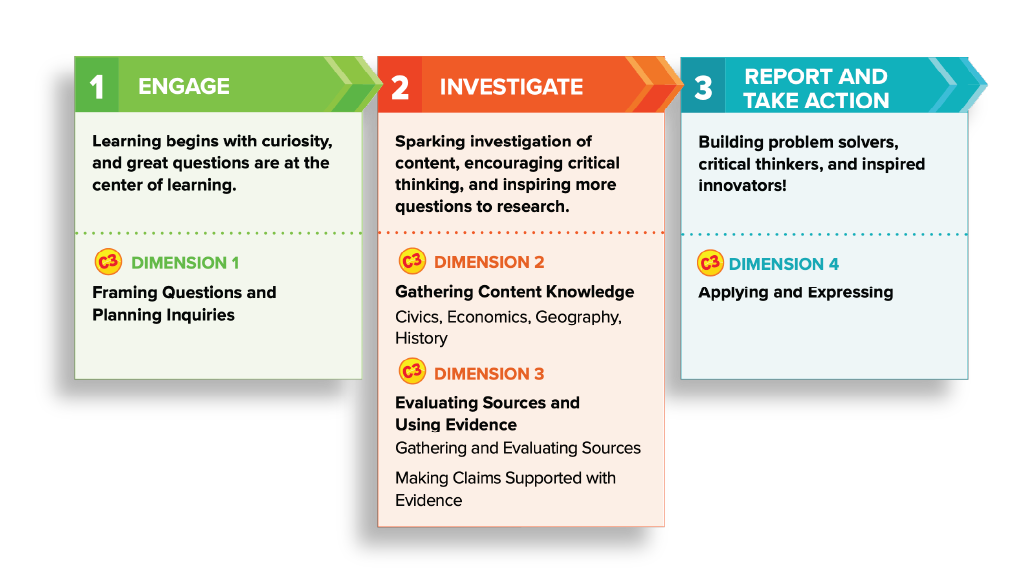
The IMPACT Social Studies instructional model scaffolds the C3 Framework’s inquiry arc to make it easy to implement in your classroom. Each of the four dimensions are represented throughout the three-part lesson model:
|
Engage: Dimension 1 |
|
Investigate: Dimensions 2 and 3 |
|
Report and Take Action: Dimension 4 |
Ultimately, incorporating the C3 Framework into the lesson model ensures that students receive high-quality social studies instruction every step of the way, and teachers can confidently meet state standards set out by the Common Core.
Essential Questions
At all grade levels of IMPACT Social Studies, content is organized around inquiry-based chapters of study featuring engaging Essential Questions such as “Why Does It Matter Where We Live?” These questions spark curiosity and encourage students to find their voice and develop opinions while unpacking the core concepts of each chapter.
Lesson Questions continue the inquiry process by building the knowledge students need to address the chapter Essential Question—prompting them to dive into historical concepts and discover unique perspectives as they analyze high-quality primary and secondary sources.
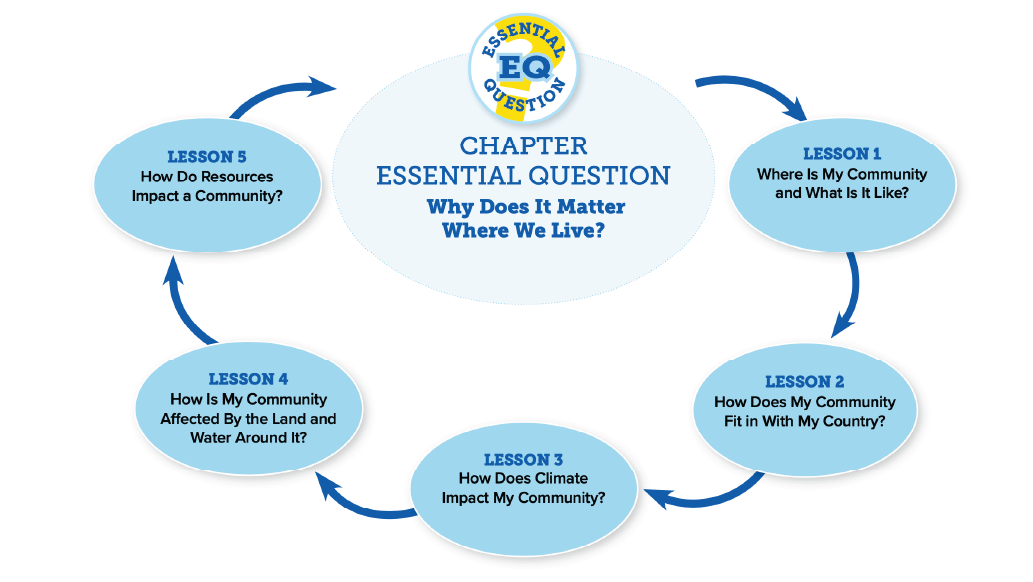
The Four Domains of Social Studies
IMPACT Social Studies builds a solid grounding in the essential domains of social studies—history, geography, economics, and civics—with conceptually coherent units of study that provide active engagement with a rich variety of informational texts, primary sources, media, and activities. In a spiraled, developmental approach across all grade levels, students learn and practice disciplinary tools and strategies to think like a historian, a geographer, an economist—and as an informed, engaged citizen.
Students learn to ask questions about the past using a variety of primary and secondary sources, including captivating stories, immersive hands-on activities, and dynamic digital content. When engaging with sources, students interact with integrated strategies that require them to inspect the materials, find evidence to support claims, and make connections to other ideas and perspectives.
Exploring geography helps students understand how people have shaped our planet over the centuries and develop an appreciation for what connects us despite our geographic differences. Throughout the program, students exercise their map skills to explore the impact of geography on historical events.
Economics concepts are introduced across all grade levels to help students develop the fundamentals of economic thinking. Graphs, charts, and infographics support key concepts and provide students with opportunities to build analysis and visual literacy skills. Teacher notes support interdisciplinary connections of key concepts to math and science.
The IMPACT instructional model encourages students to connect their learning to real-world issues and apply problem-solving and communication skills. Citizenship features explore key concepts in civics and government and connect them to students’ lives. Biographies tell the stories of people from the past and present who have made a difference in our communities, our country, and our world.
Multiple Perspectives
Multiple perspectives are woven throughout IMPACT Social Studies—through the core text, primary sources, biographies, images, and literature connections. These rich points of view focus on issues that affect students’ daily lives both locally and globally, as well as the contributions of individuals from many social, cultural, and racial experiences.
Articles and features in the Inquiry Journal and Research Companion encourage students to engage with ideas and issues that have been debated throughout history. As students form their own opinions about these ideas and issues, they are reminded to cite reliable sources to support their claims.
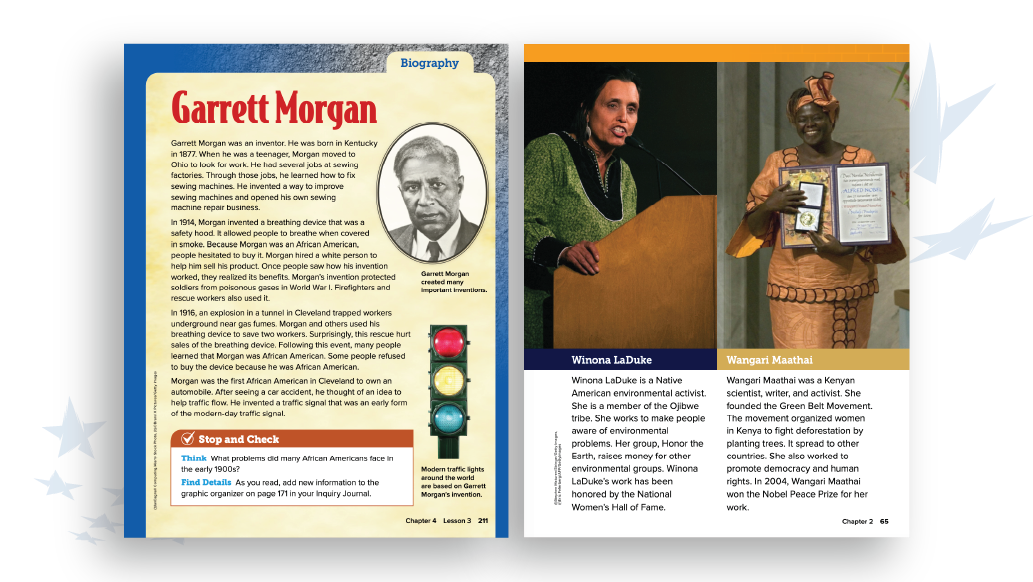
Active Citizens
IMPACT Social Studies is designed around the belief that today’s students are tomorrow’s leaders. To that end, IMPACT texts focus on developing civic values and democratic principles as students build an understanding of their role in the community, the nation, and the world.
At all grade levels, students learn about the key factors of a democratic society in which everyone’s fundamental human rights are respected. Through reading, writing, and conversation, students are provided myriad opportunities to explore the meaning of citizenship and the qualities of good citizens, such as good sportsmanship, fair play, sharing, respect, integrity, and taking turns.













